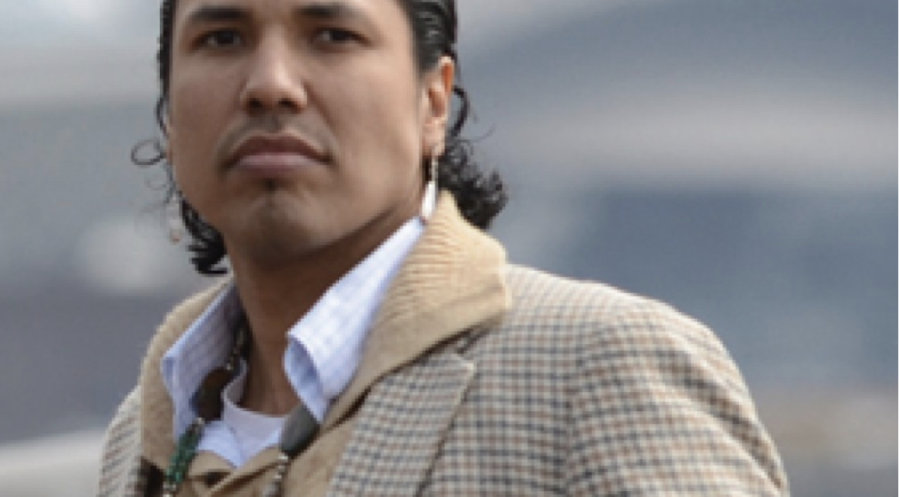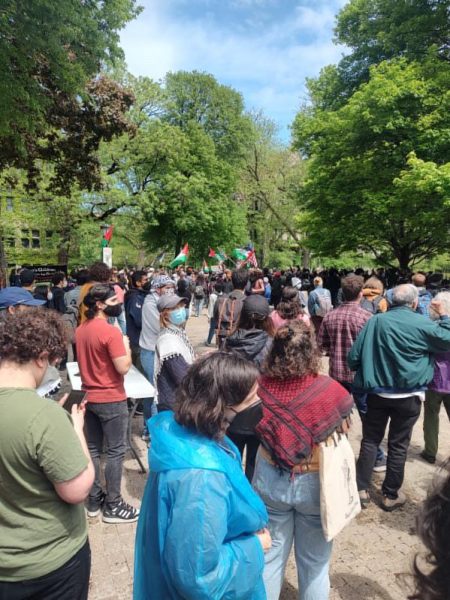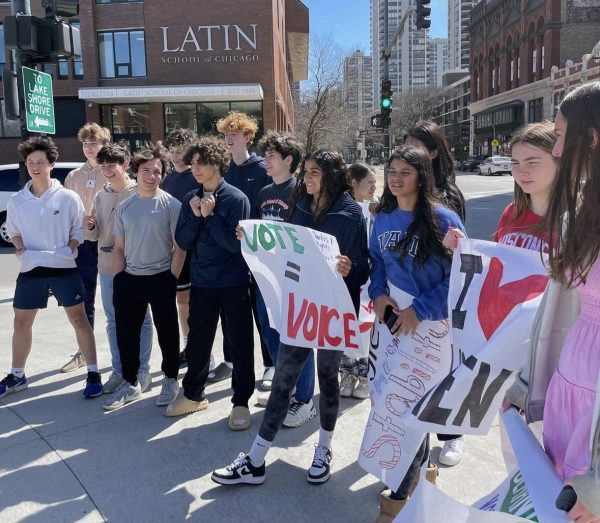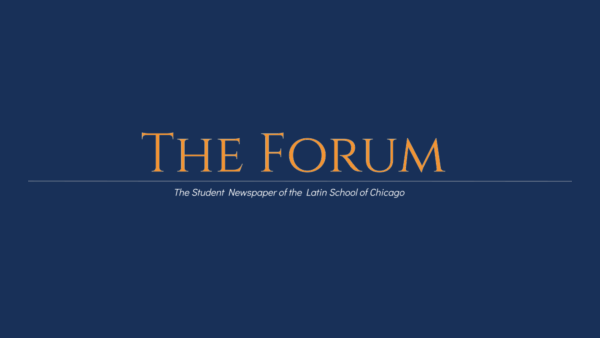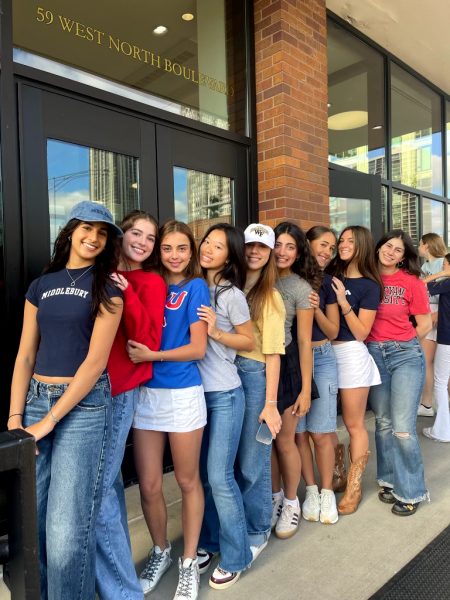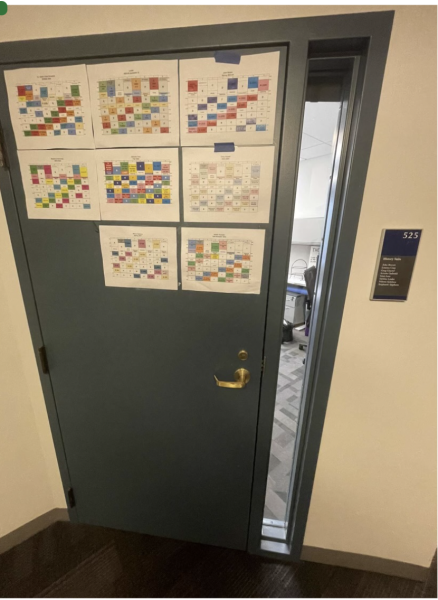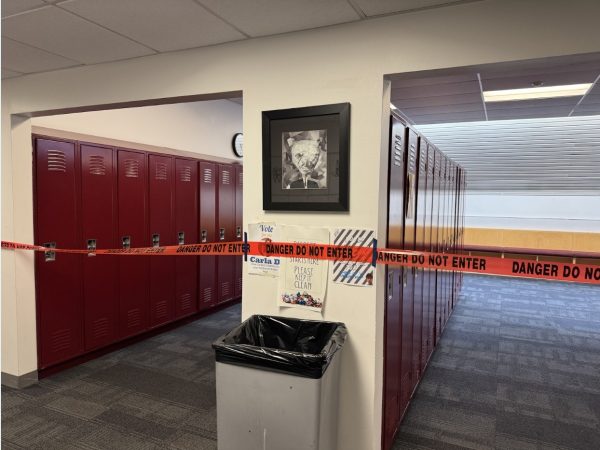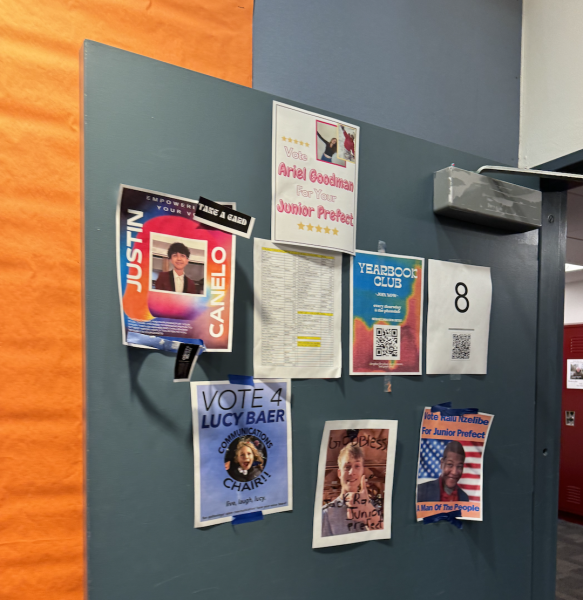Gyasi Ross Brings Unique Perspective to Latin’s MLK Day of Commemoration
Levi Blackwolf | Wolfn Photography
Gyasi Ross was invited as the keynote speaker for Latin’s annual MLK Day of Commemoration.
Latin’s seventh annual Dr. Martin Luther King, Jr. Day of Commemoration featured keynote speaker Gyasi Ross on January 18. Many were inspired by the talented storyteller, author, lawyer, and activist.
Mr. Ross grew up on a Native American reservation, and Director of Diversity, Equity, and Inclusion (DEI) Eleannor Maajid chose Mr. Ross to speak during this MLK Day of Commemoration because of the important perspective he brings to both social justice and legal work. Through the stories Mr. Ross recounted to those who filled the Wrigley Theater, he connected with Latin’s MLK day theme of “From Awareness to Action.”
Ms. Maajid said, “I thought that [Ross] could give [students] an eye into something that they may not know as much about, [while] also being able to see themselves in those stories and even in his life, with what he overcame to get to where he is. It’s a good story, and it’s a good way to represent what we can do ourselves [to] make change, even if it’s small.”
Mr. Ross comes from a family of storytellers. He has said, “Indigenous people are the best storytellers in the world because we’ve done it for survival—that’s how we’ve conveyed messages and warnings and lineages forever.”
He used his storytelling talents to speak about different instances of discrimination Indigenous people have faced and how different communities have responded to and overcome these issues. Mr. Ross shared a powerful story about environmental leader Billy Frank Jr. and his persistent activism. Frank Jr. was arrested over 50 times for fishing on the Nisqually River, despite it being a right granted to him by the Treaty of Medicine Creek. Every time Frank Jr. was let out of jail, he returned to his same fishing spot and fished to protect his and his community’s tribal fishing rights.
“I don’t want [to] compare [myself] to [MLK], or Uncle Billy Frank, or the folks that started Black Lives Matter, because it’s not the same,” Mr. Ross said. “But in my own little corner, what I’ve done and what I’ve tried to do, is when I believe something needs to be done, I throw sheer audacity sometimes, just finding a way to do it.”
Of Mr. Ross’s presentation, sophomore Aria Balani said, “I liked that it was in storytelling format. The way Gyasi Ross, throughout the stories he told, explained that even the smallest actions [in] instances of discrimination can make a difference stuck with me.”
While storytelling can be an engaging form of communication, with regards to the event as a whole, Aria said, “I’m not sure how effective it was, because it felt more mandatory. I haven’t really heard anyone talk about him after the assembly.”
Students don’t doubt the importance of Mr. Ross’ stories, but some students appeared less than engaged.
Sophomore Kaden Uddin said, “I have heard people talking about him, and while I found it pretty engaging, I think that due to the long amount of time the presentation [took], some people got less engaged near the end.”
Still, Mr. Ross spoke to the importance of immersing ourselves in social justice work, beyond just discussions like this one. “It’s just as simple to the degree that we just go through platitudes about MLK day, Native American Heritage Month, Black History Month, Indigenous Peoples Day,” he said. “Whatever it is, to the degree that it is just platitudes, then it’s just that simple. But to the degree that we use it as a reminder that there’s actual work that needs to be done in real time, right now, that brings out the importance of these days and months.”
Mr. Ross challenged every student in the auditorium to use any privileges and opportunities given to them to create change in the world for those who are not as fortunate.
A handful of students lingered after Ross’s speech to ask follow-up questions and talk about their own life experiences. He took the time to have an in-depth conversation with every student that wanted to speak with him. They talked about everything from coaching seventh-grade basketball to his work as a criminal defense lawyer.
Sophomore Eva Lapiere said, “He was one of the best guest speakers Latin has ever had.”
However, not every student took advantage of the opportunity to speak with him, or even spent time reflecting with their advisors and peers. Upper School history teacher Milena Sjekloca reported that during the post-speech reflection in her advisory, all of the students were quiet.
Students approached and left Mr. Ross’s speech with varying degrees of engagement and intention to learn. But Mr. Ross did initiate an ongoing conversation about our privilege and social imperatives. Hopefully, all students will take the time to join this conversation and create their own justice narrative to continue the legacy of Dr. King.
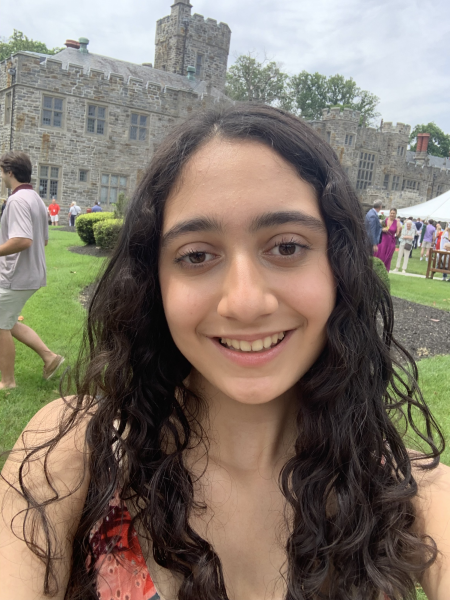
Natalie Arora ('25) has been writing for The Forum since her freshman year and is thrilled to return this year as a Features Editor. She looks forward...






































